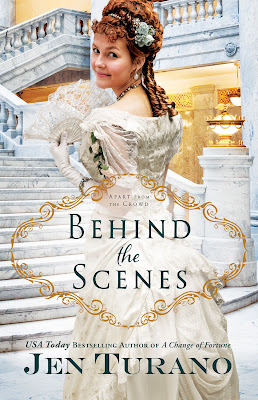Some writers languish over description and create lengthy narratives to enhance their novels. Their readers enjoy passages rich with prose. Their pleasure is intensified in the details—the special features, characterization, and attributes of plot and setting.
Other writers offer enough description for readers to create their own story world. These readers value being part of the adventure. Too much narrative spoils their experience. The few areas featuring details allow readers to use their imaginations, as though they are a part of the writing process.
No matter a writer’s preference of writing style, common guidelines apply to all great novels. Descriptions must reflect character, genre, plot, emotion, and setting. These nuggets are to be shown throughout the story in ways that demonstrate the writer’s voice and style.
A polished writer searches for nouns and verbs to pack a punch. They aren’t afraid to add an adjective if it enhances the story.
A devoted writer labors to reflect intimate knowledge of the characters, plot, and setting.
A diligent writer ensures every word is necessary or deleted.
An enthusiastic writer pays close attention to sensory perception, symbolism, and point of view. Each character approaches the story world with their own unique perspective.
The entire process of acquiring research for how details are handled means lots of time and hard work for the writer.
Description is organic, a harmonious weaving of words that is seamless.
Insight into the building blocks of story pave the way for description.
Characterization
A writer knows and understands her character to the best of her ability before typing the first word. A discovery time begins as the character becomes more real during the writing process. Details about the character’s personality, background, culture, emotion, education, religious beliefs, and a list of other unique traits. Look for the oddity in the character, the idiosyncrasy, the one thing defining the character from all others.
Genre
Each genre contains elements setting it apart from all the others. Those distinctions are the details to include in the story. For example, romance novels engage the feelings of the hero and the heroine in language that uses soft consonants, bantering, and deep feelings. Suspense novels uses hard consonants to evoke tension, confrontation, and harshness. Fantasy novels often contain unusual cultures and language to build on a story world. Writers study and continue to read in their genre to master techniques.
Plot
Every story has a plot. But the plot in a romance, historical, fantasy, suspense, thriller, western, mystery, etc are all different. The goal of the story may be to solve a crime, win the girl, or stop a killer from destroying the world. The method of description corresponds to the type of story.
Setting
Where a scene takes place is an area too many writers fail to see the opportunity to move a story ahead. Describe the setting as though it were an antagonist—attractive, alluring, and then have it turn on the character.
Emotion
Emotion is why a reader turns pages. It represents passion while in the midst of initiating and responding to life. Conflict in emotions is what every person endures, and it’s vital to the impact a story has for the reader.
Description does matter in fiction, not as an engine-additive but as a power-booster to the success of an unforgettable novel.
How do you approach description?
__________
DiAnn Mills is a bestselling author who believes her readers should expect an adventure. She combines unforgettable characters with unpredictable plots to create action-packed, suspense-filled novels.
Her titles have appeared on the CBA and ECPA bestseller lists; won two Christy Awards; and been finalists for the RITA, Daphne Du Maurier, Inspirational Readers’ Choice, and Carol award contests. Library Journal presented her with a Best Books 2014: Genre Fiction award in the Christian Fiction category for Firewall.
DiAnn is a founding board member of the American Christian Fiction Writers, a member of Advanced Writers and Speakers Association, Sisters in Crime, and International Thriller Writers. She is co-director of The Blue Ridge Mountain Christian Writers Conference and The Author Roadmap with social media specialist Edie Melson where she continues her passion of helping other writers be successful. She speaks to various groups and teaches writing workshops around the country.
DiAnn has been termed a coffee snob and roasts her own coffee beans. She’s an avid reader, loves to cook, and believes her grandchildren are the smartest kids in the universe. She and her husband live in sunny Houston, Texas.
DiAnn is very active online and would love to connect with readers on any of the social media platforms listed at www.diannmills.com.
Deep Extraction
by DiAnn Mills
A pacemaker should have saved oil and gas magnate Nathan Moore’s life. Instead, it provided his killer with a seemingly perfect means of execution.
A bombing at one of Nathan’s oil rigs days earlier indicates his death could be part of a bigger conspiracy, a web Special Agent Tori Templeton must untangle. But her first order of business is separating the personal from the professional―the victim’s wife, her best friend, is one of the FBI’s prime suspects.
Clearing Sally’s name may be the biggest challenge of her career, but Tori finds an unexpected ally in the newest member of the task force, recently reinstated Deputy US Marshal Cole Jeffers. As Tori and Cole dig deeper into Nathan’s personal and business affairs, they uncover more than they bargained for. And the closer they get to finding the real killer―and to each other―the more intent someone is on silencing them for good.
Purchase: Deep Extraction










































